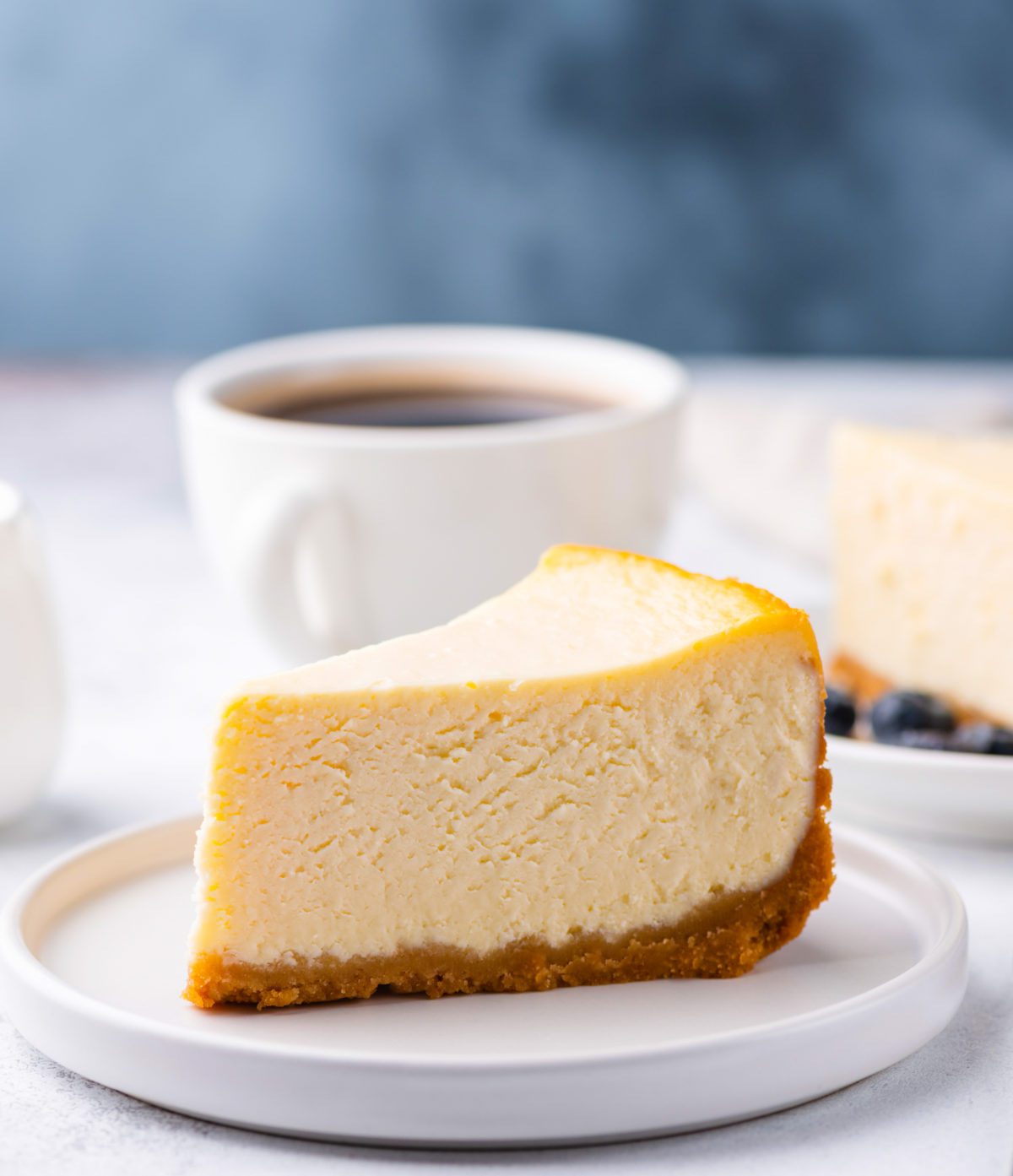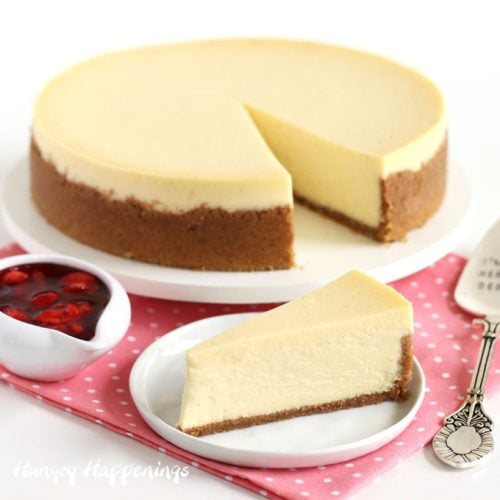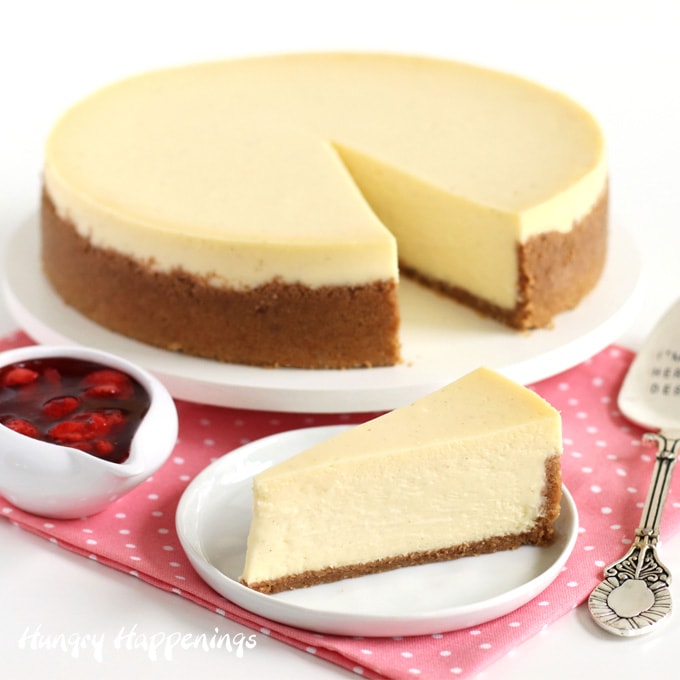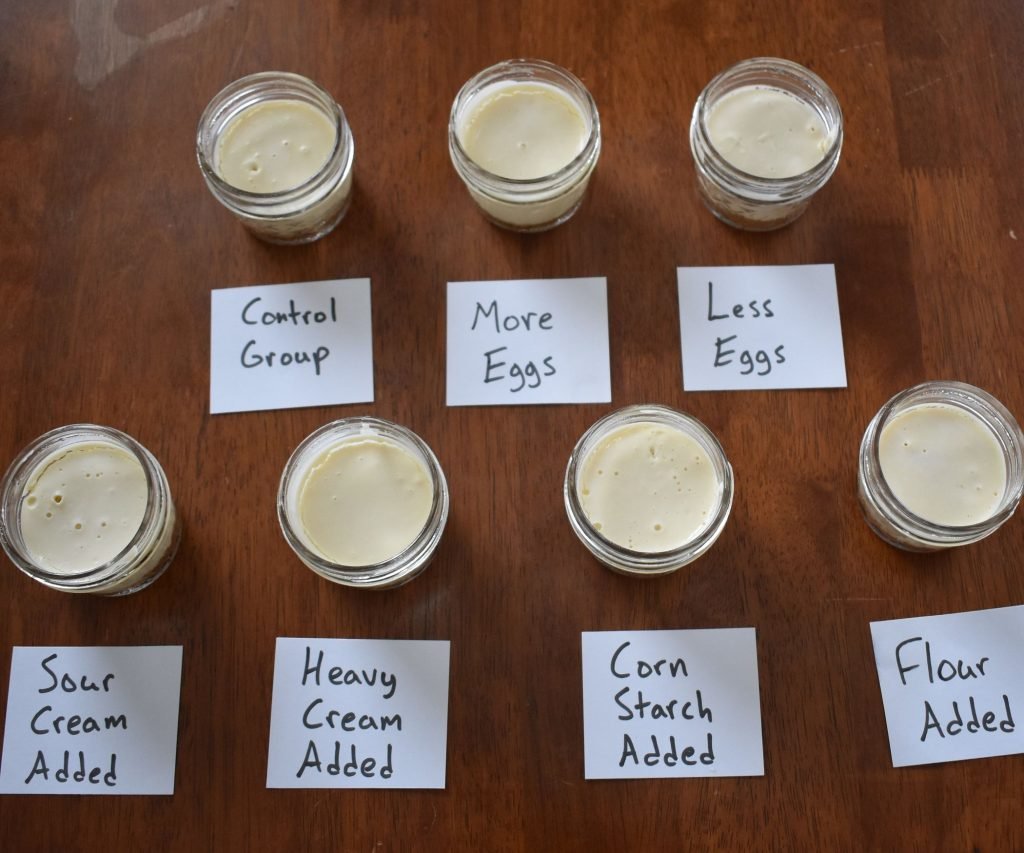Does cheesecake have eggs? Yes, traditional cheesecake contains eggs. Eggs help bind the ingredients and give the cheesecake its rich, creamy texture. Most classic recipes use whole eggs and sometimes egg yolks. However, eggless versions also exist for those with allergies or dietary restrictions, using substitutes like cornstarch or silken tofu.
It’s a question that might pop into your mind whether you’re a seasoned baker or simply a curious dessert lover. Understanding the ingredients not only satisfies your curiosity but also helps you make informed choices, especially if you have dietary restrictions or allergies.
Imagine being able to confidently answer this question the next time it arises, impressing your friends or family with your knowledge. But more importantly, knowing what’s inside your favorite dessert could change the way you enjoy it. This article will unravel the secrets behind cheesecake’s irresistible texture and flavor, diving into its essential components and their roles. Stick around to discover how eggs might be part of the mix and learn why they could be the key to achieving that perfect cheesecake consistency you crave.

Credit: www.onceuponachef.com
Does Cheesecake Have Eggs?
Cheesecake Ingredients
Cheesecake is a beloved dessert that tantalizes taste buds with its creamy texture and rich flavor. But what exactly goes into making this delightful treat? The ingredients in a cheesecake are simple, yet they combine to create something extraordinary. Understanding these components can enhance your baking experience and perhaps even inspire your culinary creativity.
Cream Cheese: The Heart Of Cheesecake
Cream cheese is the main ingredient in most cheesecake recipes. It’s what gives cheesecake its smooth and creamy texture. Without it, you’d just have a cake, not a cheesecake. Ensure you use full-fat cream cheese for the best results, as it provides the richness that cheesecake is known for.
Eggs: The Binding Agent
Yes, most traditional cheesecake recipes do include eggs. Eggs act as a binding agent, holding the cheesecake together and giving it structure. Have you ever wondered why a cheesecake has that delicate, custard-like consistency? Thank the eggs for that. They also help the cheesecake rise slightly as it bakes, creating a light and airy texture.
Sugar: Sweetness Factor
Cheesecake would be incomplete without sugar. It balances the tanginess of the cream cheese and enhances the overall flavor. While granulated sugar is the most common, some recipes call for brown sugar for a deeper flavor. How much sugar you add can be adjusted to suit your taste.
Crust: The Crunchy Base
A good cheesecake needs a sturdy base, and that’s where the crust comes in. Traditionally made with graham crackers, butter, and a bit of sugar, the crust adds a satisfying crunch. Feeling adventurous? Try using cookies like Oreos or digestive biscuits for a unique twist. The choice of crust can change the entire flavor profile of your cheesecake.
Flavorings: Personal Touch
This is where you can get creative. Vanilla extract is a classic choice, but why stop there? Lemon zest, chocolate chips, or even a splash of liqueur can take your cheesecake to new heights. Have you tried adding a swirl of raspberry puree or a layer of caramel? These small additions can make a big impact on the final taste.
Next time you whip up a cheesecake, think about each ingredient and what it brings to the table. What will you experiment with in your next cheesecake masterpiece?

Credit: hungryhappenings.com
Role Of Eggs In Cheesecake
Eggs play a crucial role in cheesecake, providing structure and a creamy texture. They bind ingredients together, ensuring a smooth and rich consistency. Their presence transforms the cheesecake into a delightful, velvety dessert.
The creamy delight of a cheesecake is often credited to a few key ingredients, and eggs play a crucial role in achieving that perfect texture. If you’ve ever wondered why eggs are a staple in most cheesecake recipes, you’re in the right place. Let’s dive into how these humble ingredients make all the difference in your favorite dessert.
1. Eggs As A Binding Agent
Eggs help hold all the ingredients together in a cheesecake. They act like glue, ensuring every bite is smooth and cohesive. Without them, your cheesecake might crumble, leaving you with a less satisfying experience.
2. Eggs For Richness And Flavor
Adding eggs to your cheesecake enhances its richness. They contribute to the depth of flavor, giving your dessert that irresistible taste. You might notice that cheesecakes without eggs often lack this luxurious flavor.
3. Eggs And The Perfect Texture
Ever wonder why some cheesecakes are silky smooth while others are not? Eggs are the secret. They create a creamy texture that melts in your mouth. Next time you take a bite, remember that eggs are working their magic.
4. The Science Of Eggs In Cheesecake
Eggs coagulate as they cook, which means they transform from liquid to solid. This process helps the cheesecake set properly. Consider it a science experiment in your oven that leads to a delicious outcome.
5. Balancing Eggs With Other Ingredients
It’s all about balance. Too many eggs can make your cheesecake rubbery, while too few can lead to a sloppy mess. The key is finding the right proportion to keep everything harmonious.
How do you like your cheesecake? Do you prefer a dense New York style or a lighter version? The number of eggs you use can make a big difference. The next time you bake, experiment with egg quantities and discover your perfect cheesecake.
Exploring Alternative Ingredients
Many cheesecakes do contain eggs, providing a creamy texture. Some recipes use alternative ingredients like tofu or cream cheese. Exploring these options can accommodate dietary preferences and allergies, making cheesecake accessible to more people.
Cheesecake, a beloved dessert for many, traditionally relies on eggs to achieve its rich, creamy texture. But what if you’re allergic to eggs or prefer a vegan lifestyle? Luckily, there are alternative ingredients that can deliver that same delightful experience without using eggs.
These substitutes not only cater to dietary restrictions but also open up exciting possibilities in the kitchen.
Using Silken Tofu
Silken tofu is an excellent substitute for eggs in cheesecake recipes. Its smooth texture blends seamlessly into the batter, providing the creaminess you love. To use, simply blend silken tofu until smooth and mix it in.
You might be surprised at how well it mimics the consistency of a traditional cheesecake. Have you tried tofu in desserts before?
Opting For Greek Yogurt
Greek yogurt can also replace eggs while adding a tangy flavor to your cheesecake. It offers a protein boost and a nice texture.
Substitute one egg with a quarter cup of Greek yogurt. This might become a new favorite for those who enjoy a hint of yogurt’s distinctive taste in their cheesecake.
Trying Flaxseed Meal
Flaxseed meal is a fantastic option for those who are seeking a plant-based substitute. Mix one tablespoon of flaxseed meal with three tablespoons of water to replace one egg.
Let it sit for a few minutes until it thickens. This mixture binds ingredients together, making it a great choice for egg-free baking. Have you ever used flaxseed in your recipes before?
Exploring Commercial Egg Replacers
There are several commercial egg replacers available in stores. These products are specifically designed to mimic the binding and leavening properties of eggs.
Follow the package instructions to use them in your cheesecake recipe. They offer convenience and consistency, especially for those new to egg-free baking.
Experimenting With Avocado
Avocado might sound unusual, but its creamy texture is perfect for cheesecake. Mash it thoroughly to avoid lumps and use it in place of eggs.
Avocado adds a subtle flavor and a dose of healthy fats. Have you considered using avocado beyond your usual guacamole or salads?
Embracing these alternatives can transform your cheesecake-making experience. Whether you’re catering to dietary needs or simply curious, these ingredients provide delicious results.
Which of these egg substitutes will you try in your next cheesecake adventure?

Credit: hungryhappenings.com
Eggless Cheesecake Recipes
Many wonder if cheesecake contains eggs. Traditional recipes often do, but delicious eggless versions exist. These cater to those with dietary restrictions or preferences, offering creamy textures and rich flavors without eggs. Perfect for everyone to enjoy.
Eggless cheesecake recipes are a delightful discovery for those looking to enjoy the creamy goodness of cheesecake without using eggs. Whether you’re catering to dietary restrictions or simply want to try something different, eggless cheesecakes offer a unique twist. Imagine indulging in a slice that’s just as rich and decadent as its traditional counterpart, without compromising on taste or texture.
Simple Substitutes For Eggs
Eggless cheesecakes don’t mean sacrificing flavor. You can use simple substitutes like yogurt or silken tofu. These ingredients provide the necessary moisture and structure. Yogurt adds a subtle tang that complements the cream cheese, while silken tofu offers a smooth consistency.
Perfect Your Base
The base of any cheesecake is crucial. For eggless versions, focus on achieving the right crunch and flavor. Try using graham crackers or digestive biscuits. Mix them with melted butter until they resemble wet sand. Press firmly into the pan for a sturdy foundation.
Adding Flavor Without Eggs
You can get creative with flavors in eggless cheesecakes. Fresh fruits, zesty lemon, or rich chocolate are great options. Consider using vanilla extract or almond essence for a fragrant aroma. These additions enhance the cheesecake without needing eggs.
Getting The Right Consistency
Consistency can be tricky in eggless cheesecakes. Aim for a creamy, dense texture. Blend your cream cheese thoroughly with sugar and substitutes. Refrigerate for several hours to set properly. This ensures each slice is firm yet creamy.
Baking Vs. No-bake
Do you prefer a baked cheesecake or one that sets in the fridge? Both methods work for eggless recipes. Baking offers a traditional experience with a golden top. No-bake versions are quick and easy, perfect for summer days. Choose based on your preference and available time.
Share Your Eggless Creations
Have you tried making eggless cheesecake? Share your experiences. Did you discover a new favorite flavor combination or a trick for perfect texture? Your insights could inspire others to try eggless recipes. Encourage friends and family to explore this egg-free dessert option.
Eggless cheesecake recipes are an exciting way to enjoy a classic dessert with a twist. By experimenting with different flavors and techniques, you can create a treat that’s both delicious and accommodating. Would you dare to try making one?
Tips For Perfect Cheesecake
Eggs are essential for a creamy cheesecake texture. They bind the ingredients, creating a smooth, rich filling. Without eggs, cheesecakes may lack firmness and flavor depth. Experiment with the number of eggs to find your perfect balance for an ideal cheesecake.
Cheesecake is a delectable dessert that many love to indulge in, but achieving the perfect cheesecake can be a challenge. Whether you’re wondering about the presence of eggs in cheesecake or just looking to elevate your baking game, these tips will guide you toward creating that creamy, smooth texture everyone craves. Let’s dive into the essentials that will help you bake the perfect cheesecake every time.
Choose The Right Ingredients
The quality of your cheesecake starts with the ingredients. Use full-fat cream cheese for a rich flavor and texture. Fresh eggs are essential for binding the ingredients and adding creaminess. You might be tempted to use low-fat or fat-free options, but they often result in a watery and less satisfying cheesecake.
Master The Art Of Mixing
Mixing your ingredients just right is crucial. Overmixing can incorporate too much air, causing cracks on the surface. Aim for a smooth batter by mixing at low speed. If you’re like me and sometimes get carried away with the mixer, remember that gentle is the way to go.
Bake With Precision
Baking your cheesecake at the correct temperature is key. Preheat your oven to the recommended setting, usually around 325°F. Use a water bath to maintain an even temperature and prevent the cheesecake from drying out. This simple step can make a big difference in achieving that perfect texture.
Chill For The Right Amount Of Time
Patience is a virtue when it comes to cheesecake. After baking, allow your cheesecake to cool at room temperature before refrigerating. Let it chill for at least four hours, or overnight if possible. This helps the flavors to meld and ensures that you get clean, neat slices.
Perfect Your Presentation
Presentation adds to the allure of cheesecake. Use a knife dipped in hot water to slice your cheesecake for clean edges. Top with fresh fruit, chocolate shavings, or a drizzle of caramel for that professional touch. Your masterpiece deserves to be showcased!
Which tip will you try first to elevate your cheesecake game? With these insights, you’re well on your way to creating a dessert that’s not only delightful to eat but also a feast for the eyes.
Frequently Asked Questions
Do Cheesecakes Contain Eggs?
Yes, most traditional cheesecakes contain eggs. Eggs help provide structure and a creamy texture. Some eggless recipes exist for those with dietary restrictions or preferences. Always check the specific recipe or label for exact ingredients.
Can Cheesecake Be Made Without Eggs?
Yes, cheesecake can be made without eggs. Use alternatives like cream cheese, yogurt, or silken tofu. These ingredients maintain the creamy texture. Many eggless recipes are available for delicious cheesecake. Enjoy a tasty dessert without eggs.
Can Egg Allergy Eat Cheesecake?
People with egg allergies should avoid traditional cheesecake, as it typically contains eggs. Check labels for egg-free alternatives or recipes. Always consult a healthcare professional for guidance on safe food choices.
Conclusion
Cheesecake often contains eggs. They help create a creamy texture. Eggs bind ingredients together. They also add richness and flavor. Most traditional recipes include them. Some variations use substitutes. For example, vegan cheesecakes might use tofu or flaxseed. Always check ingredient lists.
This ensures it meets dietary needs. Homemade recipes allow for adjustments. Experiment with different options. Enjoy your cheesecake, knowing what’s inside. Understanding ingredients is important. It helps with preparation and enjoyment. Whether eggs are included or not, cheesecake remains a delightful dessert.
Related Recipes
- Does Cheesecake Have Cheese? Unveiling the Truth
- Why Did My Cheesecake Crack? Tips to Prevent It
- Do You Bake Cheesecake? Discover Pro Tips & Tricks
Hi there, I’m Preppy Hartwell, but you can call me Preppy—the apron-clad foodie behind Preppy Kitchen Tips! I created Preppy Kitchen Tips because I’m convinced food has a way of telling stories that words can’t. So, grab a fork and dig in. The past never tasted so good!

